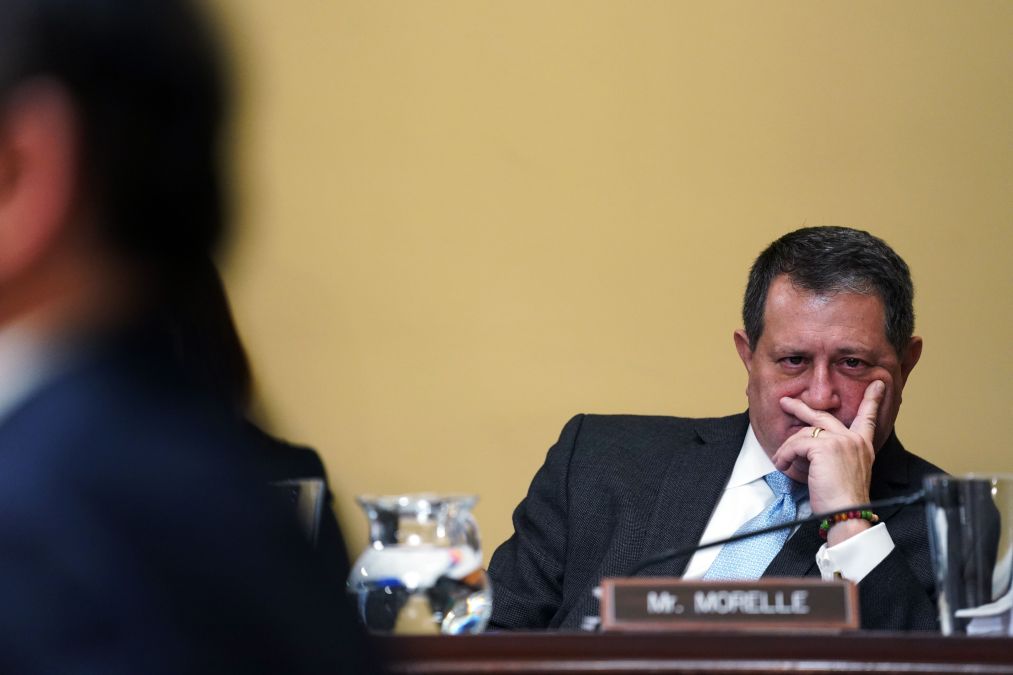
The top Democrat on the House Administration Committee is signaling “strong support” for the Federal Communications Commission’s ongoing efforts to mandate disclosure of AI use in political ads, emphasizing transparency as essential as lawmakers assess how to regulate the technology in the future.
In July, the FCC proposed a new regulation that would require broadcasters to disclose when ads by or on behalf of candidates for both federal and state offices contain any AI-generated content. It would also extend the same requirements to issue-related political advertisements.
In a letter sent to FCC Commissioner Jessica Rosenworcel, Rep. Joe Morelle, D-N.Y., wrote that “the absence of effective guardrails” around generative AI in political ads “presents a clear and present danger to the information ecosystem in the upcoming election.”
“The current lack of regulation that specifically addresses political advertisements could easily be exploited by candidates for office and dark money groups attempting to confuse and manipulate voters,” Morelle wrote.
As an example, Morelle cited a June incident where a TikTok account linked to congressional candidate Anthony Hudson posted an AI-generated voiceover of Martin Luther King Jr. endorsing the Michigan Republican. Hudson, who lost the primary, later claimed the video was mistakenly posted by a campaign volunteer’s friend.
“The American public deserves to know whether the political advertisements they see on television or hear on the radio have been manipulated by generative AI,” Morelle wrote.
Morrelle’s endorsement could provide the FCC additional cover in its quest to place new federal restrictions on AI in political advertisements at the same time the agency is butting heads with the Federal Election Commission over its legal authority to regulate the issue.
Sean Cooksey, the FEC chair nominated by President Donald Trump in 2020, took aim at the FCC’s proposal in a letter in June, noting that the FEC had sole authority and was mulling its own rulemaking process.
“If the FCC moves forward with a final rule on this issue, I fear your proposed regulations may create irreconcilable conflicts between our agency’s respective statutes and rules,” Cooksey wrote.
However, the FEC appears to be shifting its stance. The agency is set to vote this week on a measure, endorsed by Cooksey, that would halt new rules this year around the use of AI in political advertisements, and instead consider enforcement under existing law “on a case-by-case basis.”
Rosenworcel, appointed chair of the agency in 2021 under President Joe Biden, said last week that while her agency’s proposal wouldn’t extend to digital or online ads, it could be a “norm-changing” impetus that spurs demand for broader disclosures from voters and the public.
Rosenworcel said that even though the FCC’s proposed rule would only apply to broadcast television and radio ads, “what I hope is that if I can get the FCC to do this, it’s a norm-changing environment where as a viewer, listener and voter, you expect to see some kind of disclosure at the end, some kind of acknowledgement,” she said last week at a roundtable discussion on AI hosted by House Democrats. “And when you don’t see that on the equivalent digital ad, you might pause.”
Morelle, who was also at the roundtable, said the proposed rules from both the FEC and FCC were “not only well within their jurisdictions” but also “necessary to preserve the security of our elections.”
The proposed regulation has also received pushback from the FCC’s Republican-appointed leaders.
Commissioner Nathan Simington, nominated and confirmed under President Donald Trump in 2020, registered his opposition to the rule in August, questioning whether the agency has the authority to regulate AI disclosure in advertisements and noting it would only apply to broadcast entities, not online platforms.Commissioner Brendan Carr, also nominated by Trump, opposed the rule as well and said beginning a regulatory process in August, just three months out from an election, was “a recipe for chaos.”



